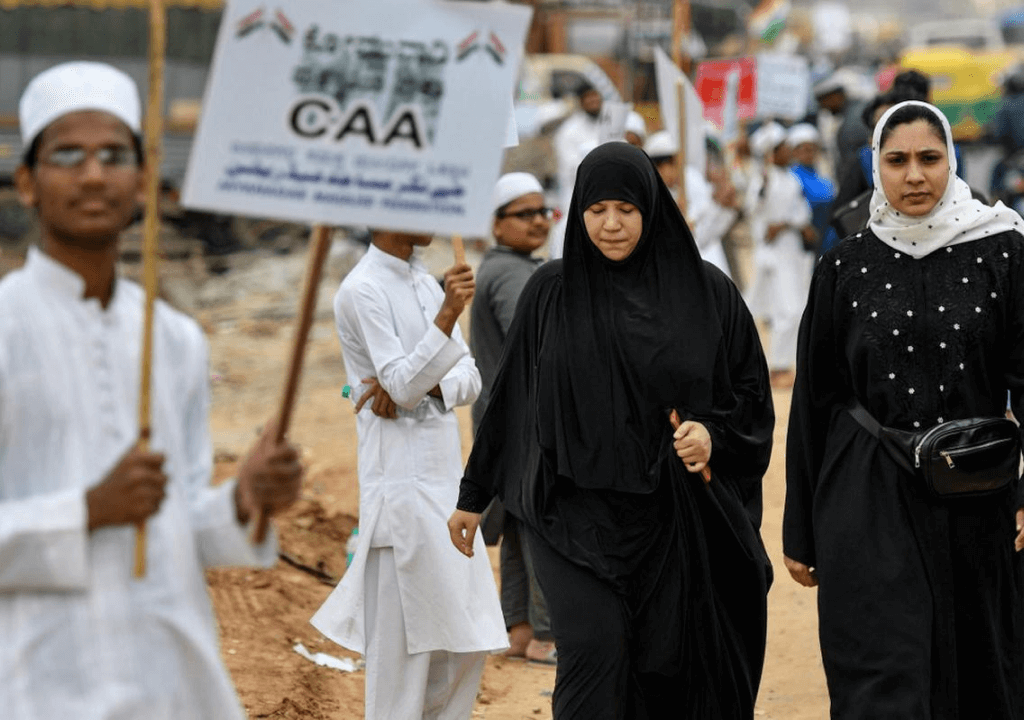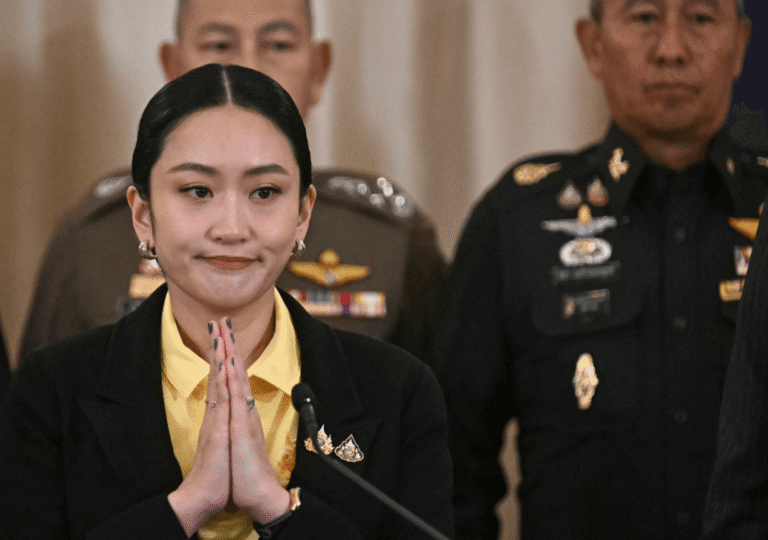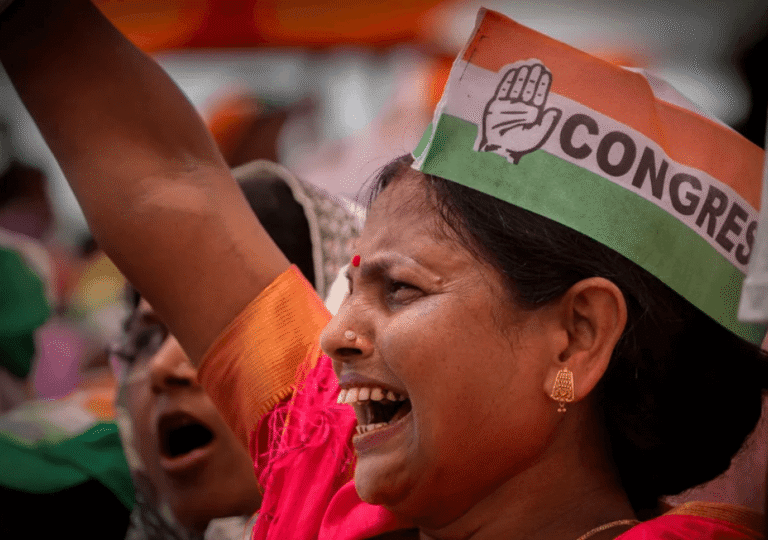Millions of individuals have sought refuge in India, escaping the stringent Islamic regimes of Afghanistan, Pakistan, and Bangladesh. Among them are Muslims in search of a better life and freedom from strict Islamic rule, as well as Hindus, Sikhs, Buddhists, and Christians facing denial of religious freedom and enduring threats such as rapes, massacres, forced conversions, and the forced marriage of young girls by Islamic groups and militias.
The significant inflow of these migrants poses a considerable challenge for the Indian government, already dealing with overpopulation. And Granting citizenship to these individuals has evolved into a major political crisis too. The migration, predominantly of Muslims, has transformed the political and demographic dynamics of states, as these newcomers now outnumber the local population. This significant demographic shift has resulted in substantial disruptions, marked by numerous riots, intensifying tensions between the migrant and local communities.
The migration issue has grown to be a major concern in at least five states since the 1970s. The initial welcome extended to the Bengali population from Bangladesh resulted in them becoming the majority in various districts of the state of Assam, predominantly inhabited by Hindu tribals who speak Assamese. Cultural difficulties arising from this population transition led to serious problems, affecting rule of law. .
As a political matter influencing elections, the Indian National Congress, traditionally relying on Muslim votes, opted for a neutral stance on the issue. In contrast, the Bhartiya Janata Party (BJP), a Hindu nationalist party, actively advocated for addressing the matter, emphasizing the potential threat to the Hindu identity of these states. The BJP employed a strategic political approach, proposing the granting of citizenship to Hindus and other minorities from these nations while excluding Muslims. This move sparked discussions in Indian politics, with concerns arising about the implications for Muslim population growth becoming a notable consideration.
Upon securing a majority in the central government, the Bhartiya Janata Party (BJP) introduced The Citizenship (Amendment) Act, which gained parliamentary approval on December 11, 2019. This amendment to the Citizenship Act of 1955 established an accelerated pathway to Indian citizenship for persecuted religious minorities from Afghanistan, Bangladesh, and Pakistan who had arrived in India by 2014. The specified eligible minorities encompass Hindus, Sikhs, Buddhists, Jains, Parsis, or Christians. Notably, Muslims from these countries are not afforded similar eligibility. This marked a significant departure in Indian law as religion became an explicit criterion for citizenship, resulting in widespread global criticism and sparking anti-India campaigns from Islamic countries.
Nevertheless, the amendment has faced criticism for perceived religious discrimination, particularly due to its exclusion of Muslims. The United Nations High Commissioner for Human Rights (OHCHR) labeled it as “Fundamentally Discriminatory,” recognizing India’s intent to safeguard marginalized communities while emphasizing the necessity for an impartial and robust national asylum system. In response to the criticism, the Indian government contended that Muslims were unlikely to experience religious persecution in Pakistan, Afghanistan, or Bangladesh, citing Islam as the official religion in those countries. However, historical evidence suggests the persecution of various Muslim sects, including Ahmadis and Hazaras (mainly Shias), in these nations.
Widespread protests erupted across India in response to the law. Notably, strong opposition materialized in Assam and other northeastern states, driven by concerns that granting Indian citizenship to immigrants and refugees could jeopardize the “Political Rights, Culture, and Land Rights” of the locals and potentially intensify migration from Bangladesh. Protesters in various regions of the country argued that the law exhibited bias against Muslims and advocated for the inclusion of Muslim immigrants and refugees in the citizenship provisions.
Numerous Indian universities experienced significant protests, with students from institutions such as Jamia Millia Institute and Aligarh Muslim University playing a prominent role. The repercussions of these demonstrations included hundreds of detentions, casualties, injuries to both protestors and law enforcement personnel, as well as damage to private and public property. Some regions also witnessed disruptions to local internet and cell phone services due to the unrest.
Several states governed by opposition political parties declared their intention not to enforce the Act. However, the Ministry of Home Affairs (MHA) asserted that states lacked the legal authority to prevent the implementation of the Citizenship Amendment Act (CAA). Union Home Minister Amit Shah committed to enacting the CAA legislation before the 2024 national elections. The MHA publicly released the guidelines on March 11, 2024, anticipating a surge in protests and legal battles as a result.
Widespread misinformation has sparked anxiety among India’s Muslim community. Some individuals, influenced by certain international media reports, mistakenly believe that the new law aims to strip Indian Muslims of their citizenship, despite the law explicitly excluding them. Additionally, unfounded rumors circulate about the establishment of concentration camps for Muslim migrants in India who cannot apply for citizenship. These misconceptions particularly erupt the concerns in a country with a significant number of illiterate individuals.
Opposition parties have raised concerns about the timing of the law’s implementation, coinciding with the imminent announcement of upcoming elections in India. Critics argue that the law may exacerbate divisions within the country, potentially creating a rift between Muslims and non-Muslims and attracting non-Muslim votes in favor of the Bhartiya Janata Party (BJP). Anticipation of significant protests by Muslims during their holy month is on the rise, with the possibility of these demonstrations turning violent, ultimately playing into the hands of the BJP’s Hindu nationalism. Nevertheless, the law is poised to give the BJP a considerable advantage in the upcoming elections, while the Indian National Congress (INC) remains uncertain in its stance.








